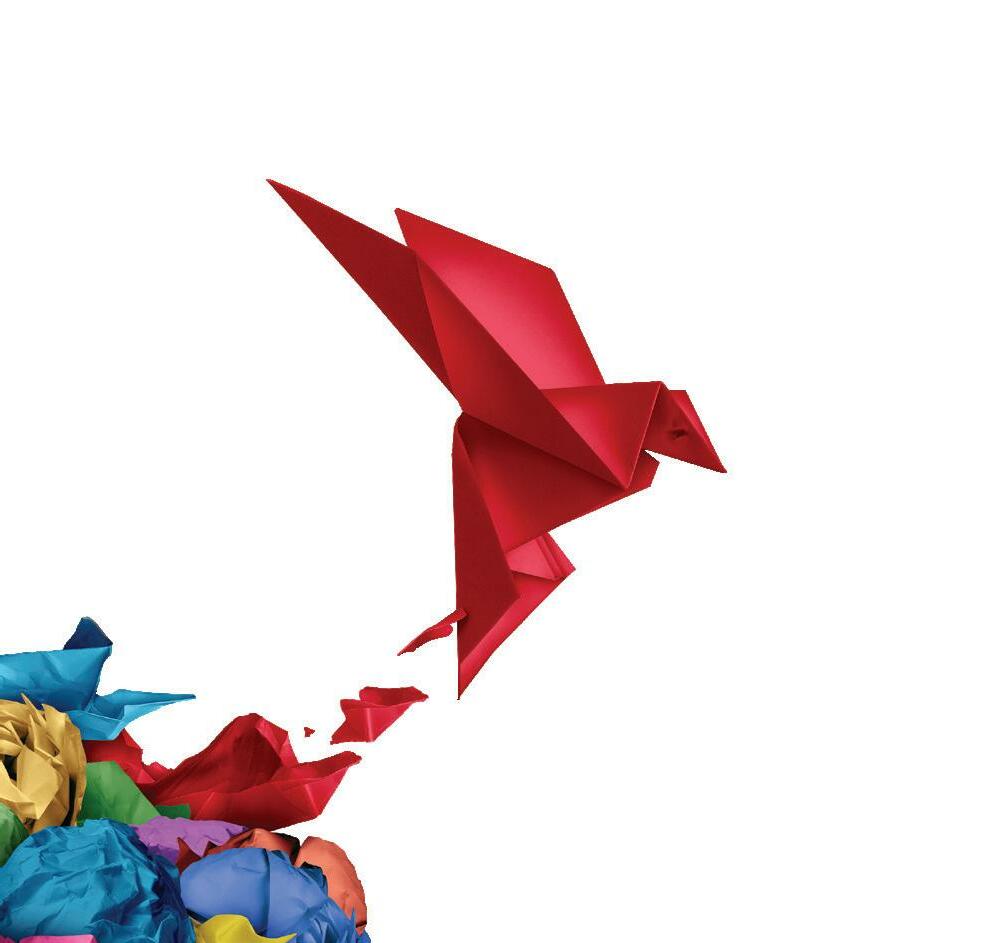
7 minute read
The neurodiverse nurse
by Karen Holman
Cert IV VN, Cert IV TAE for the Animal Industry Resource Centre/ Crampton Consulting Group
Gone are the days where we can assume to live in a world of neurotypical students and colleagues. Where everyone is expected to learn, act, think and behave the same. International Attention Deficit/ Hyperactivity Disorder (ADHD) Awareness Month runs through October; a time to celebrate individual differences and educate others while tackling the misconceptions of ADHD. ADHD is a common neurobiological condition that affects 5–8% of children. These children have symptoms that can persist into adulthood. Young girls can be difficult to diagnose by health professionals due to masking, whereas boys can be diagnosed as early as 7 years of age. A recent increase in media awareness of the neurodiverse condition indicates that more adults are now being diagnosed. One in twenty Australian adults are affected by ADHD. The majority are males, whereas females are often diagnosed when they recognise symptoms in adulthood. People with ADHD have different neurophysiology, where the brain has different anatomy, electrical activity and metabolism. The precise causes are not known, but there are multiple factors that make a person more likely to develop ADHD. Currently, researchers are still trying to isolate which genes are linked to ADHD. Neurodiversity is best described as a variance in brain function in some people. This enables them to think differently from the way others expect. Many who are diagnosed with ADHD will often have another neurodevelopmental condition such as autism spectrum disorder (ASD), specific learning disorders, Tourette syndrome or other neuro syndromes and anxiety. Medical literature within the last 200 years has described the human behaviour and characteristics of modern traits of ADHD. These can include differences in focus/ attention, regulating emotions, movement, and impulse control. German physicians Franz Kramer and Hans Pollnow importantly started to identify these differences in the early 1930s, where it was concluded that these behaviours were from other underlying causes. These included the nervous system and differences in the brain structure, which were not intellectual deficits. As medical studies advanced, Dr Charles Bradley in America discovered that stimulant medication could help improve symptoms of ADHD. However, it wasn’t until 1994 that there were three sub-types of ADHD officially recognised. The 3 types of ADHD: • Inattentive means a person is easily distractible or inattentive but isn’t hyperactive or impulsive. • Hyperactive-impulsive means a person has symptoms of impulsivity and hyperactivity. • Combined means a person has a mixture of symptoms including hyperactivity, inattention and impulsivity.

The neurodiverse nurse
Continued from previous page
Diagnosis can be expensive, prolonged and involves a team of health professionals, usually starting with a patient’s general practitioner, who refers them on to a psychologist, psychiatrist or neurologist. There is no pathology testing currently available, only cognitive and behavioural awareness testing. Adults must exhibit at least five of the symptoms in multiple settings to be diagnosed with ADHD. Once diagnosed, treatment can begin based on the individual, who may benefit from stimulant/non-stimulant medications, biomedical treatment, neurofeedback, psychology and ADHD coaching.
Self-awareness is the first step to creating tactics that help overcome any specific challenges. Communicate your diagnosis with your workplace mentor/supervisors and employer and how this can affect your workday. This will be difficult; however, having an employer and team who understand can help enhance and shape your career.

SO HOW IS THIS RELEVANT TO OUR INDUSTRY? There are many benefits that these behaviours can bring to the workplace. Nurses with neurodivergent minds can be creative and can hyperfocus on complex cases, turning the way their brain processes tasks and activities into a ‘superpower’. Other advantages include: • the ability to find unique solutions to difficult problems • being adventurous, courageous and thinking ‘outside the box’ • constantly evolving, continually learning • endlessly desiring to try new ideas, tasks and projects • being empathetic and intuitive to feelings/emotions • being conversationalists, humourists • being resourceful. Some struggles that the neurodiverse nurse may encounter within the workplace may include problems prioritising, starting or completing tasks and maintaining focus. Employers and other team members can help create a supportive environment for the neurodiverse to help optimise their abilities to see them thrive within the workplace. How ADHD affects the neurodiverse person: • poor attention; excessive distractibility • physical restlessness or hyperactivity • excessive impulsivity such as saying or doing things without thinking • excessive and chronic procrastination • difficulty getting started on tasks and completing tasks, poor organisation, planning, and time management skills • excessive forgetfulness • insomnia • sensory processing disorders. WHAT CAN HELP PRIORITISE YOU AND YOUR MIND Besides medication and therapies … you need to look after yourself. • If full-time hours don’t work for you, consider fewer hours – speak to your employer. • Take your full lunch break at work. Go outside and walk, get into the sunshine. Do not feel guilty. If you don’t look after you, how will you have the energy to look after your patients or work cohesively to help your team? • Ear buds, earmuffs – muffs may look funny, but if you’re on the kennel shift, these can be a lifesaver. • Take your annual leave! • Have a personal schedule to exercise, rest and try to sleep. • Find a hobby you love outside of work. • Grounding techniques – seek occupational therapy (OT) advice or breathing techniques i.e. what are 5 things you can physically touch, smell or see? • Wear and use antiglare glasses. • Have visual lists of tasks on the wall. • Set timers/alarms such as visual clocks, smart watches, etc. • Surround yourself with a good support system, including family and friends, who understand your neurodiversity.
THE NEURODIVERSE STUDENT Self-awareness is the first step to creating tactics that help overcome any specific challenges. Communicate your diagnosis with your workplace mentor/supervisors and employer and how this can affect your workday. This will be difficult; however, having an employer and team who understand can help enhance and shape your career. Speak to your registered training organisation (RTO) or university educators; ensure to disclose this diagnosis at time of enrolment to get the support you may need. This can help with your learning and help your educators create effective techniques to assist your learning. Get organised Use time management and organisational strategies to streamline your day. To help get more organised, you can: • set goals, write to-do lists, and use these to plan and prioritise tasks for the day • use a diary and set reminders for jobs that need doing • group similar tasks that can be done together • be mindful of sensory overload – loud noises, bright lights within your environment. Modify your environment to ensure it is comfortable and quiet • listen to podcasts, webinars or PDF readers to mix up your learning (don’t just read text) • break down tasks into smaller chunks – smaller tasks are easier to complete, easier to organise and are less overwhelming • Pomodoro technique – this involves a time management system that encourages you to work with the time you have – rather than against it. Break your tasks up into 25-minute chunks and separate with fiveminute breaks. These intervals are referred to as Pomodoro • try different brainstorming with others to solve common problems. Remember, there is often more than one solution to a problem. The workplace can help by: • promoting health and wellbeing within the workplace • encouraging employer diversity, equality and fair treatment • being mindful of each staff member’s workload and flexibility • encouraging personal and career development • focusing on the individual’s specific love/area of nursing (Are they great with medical, reception, surgical, client focus, etc.?) and get this individual to specialise in this area of the clinic • encouraging employers to educate themselves regarding neurodiverse conditions. If the neurodivergent nurse is happy, this may promote and improve the retention of skilled and motivated staff, both in their workplace and in the industry overall. A healthy workplace will also be more likely to cope well with unexpected challenges. When neurodivergent nurses understand their differences, and can harness their superpower, we can achieve brilliant things. After all, if we all saw the world from the same perspective, we wouldn’t see depth, shade or an alternative viewpoint. In daring to think differently, we not only support staff better, but also unlock potential in the workplace by unleashing much needed skills to create a positive change.
Sources Australian Psychological Society Access EAP Australian Evidence-based Clinical Practice Guideline for ADHD, published July 2022, Australian ADHD Guideline Development Group ADHDFoundation.org.au adhdsupportaustralia.com.au adhdaustralia.org.au – National Resource Centre on ADHD
VNCA SUPPORTERS
2022 VET NURSE/TECHNICIAN OF THE YEAR SUPPORTER PROFESSIONAL DEVELOPMENT SUPPORTER WELLNESS HUB SUPPORTER
DIVISION CONTACTS DIVISION CONTACTS If you would like to attend a divisional committee meeting, it is important that you RSVP. If you would like to attend a divisional committee meeting, it is important that you RSVP.










